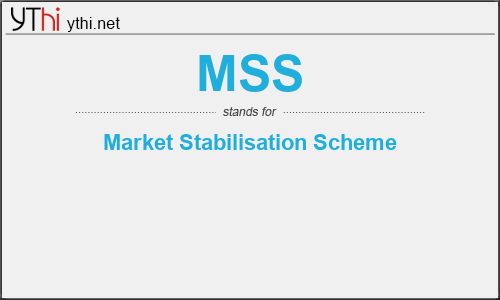What does MSS mean? What is the full form of MSS?
The full form of MSS is Market Stabilisation Scheme
Market Stabilization Scheme (MSS) is a monetary policy tool used by the RBI to manage money supply in the economy.
Under Market Stabilization Scheme or MSS, if there is an excess money supply in the economy, RBI intervenes by selling Government securities (like Treasury Bills, Cash Management Bills & Dated securities.). This helps to withdraw the excess liquidity from the system.
Open Market Operations (OMO) is buying and selling of Government securities to manage money supply in the economy. Thus, it is used to both inject and withdraw liquidity. Moreover, these securities are a part of Government borrowing.
MSS is only selling of Government securities to withdraw excess liquidity. The money raised through the selling of securities is kept in a separate account known as MSS account.
The amount kept in the MSS account is only used for the redemption (repayment) of securities issued under the MSS. This money is not used by the Government to meet its expenditure requirement. It is not a part of Government borrowing.
However, interest is paid on the securities issued under MSS. Hence, there is a marginal impact on fiscal deficit due to interest payments. But, there is no impact on fiscal deficit due to borrowings under MSS as it not used to meet expenditure requirements.
(However, following the global financial crisis of 2008, an amendment allowed the Government to convert a portion of the MSS funds into normal government borrowing for financing its stimulus expenditure requirements.)
MSS
means
Market Stabilisation Scheme![]()
Translate Market Stabilisation Scheme to other language.


Leave a Reply
You must be logged in to post a comment.